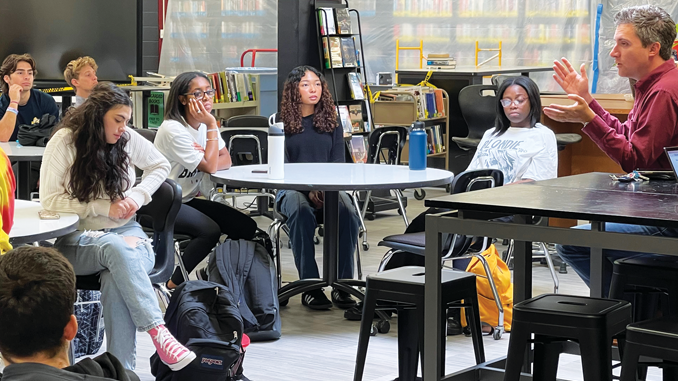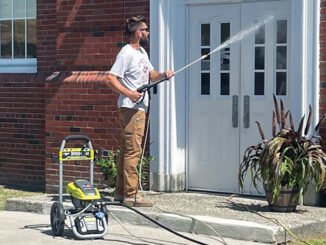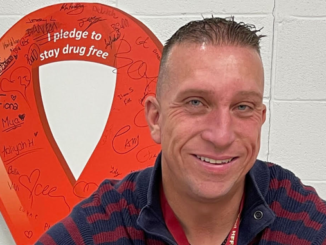
Spoke to upper level government students at JIO
“It’s like having a job interview every two years.”
That’s how New York State Senator James Skoufis explained to O’Neill High School juniors and seniors what it’s like to be an elected official.
Skoufis, in his sixth year in the state senate and a former six-year Assemblyman, was at the high school last Tuesday to speak to Civics, Economics and Government students about what he does for them.
“I represent a little over 300,000 people in Albany, including each of you,” he said. “I love it.”
He started by explaining that he spends most of the first half of every year working at the State Capitol in Albany. The second half, now, he and the other elected officials are working in their home districts.
Skoufis said they also have to “almost always” be working toward re-election.
“For instance, right now I work about 60-70 hours a week on government-related matters, and spend about five hours a week on politics-related issues,” he said, noting that includes raising money, and attending and hosting campaign events.
But, he added that, in either capacity, he is most happy when he’s out in and among the public.
“I feel most effective just talking to people, like at community events,” he said. “I want my constituents to know who I am and what I represent.”
Highlands and Cornwall are two of the places Skoufis feels most comfortable, he said. He lives in Cornwall, and has always spent considerable time in Highlands.
Thus, he’s very aware of the issues facing the communities, and spent some time talking about them last week. In fact, one student asked what he knows about the reopening of Rt. 218 over Storm King Mountain. Perhaps with a little bit of breaking news, Skoufis said he’s been told — “verbally” — that the state is committed to making repairs on the washed-out road. “But, they haven’t said how they’re going to fix it,” alluding to the possibility of it becoming a pedestrian/bicycle road. He added that whatever happens “will not be in the next few months, and maybe not months at all”.
Skoufis had a question for the students too, asking them if they knew how much New York State’s overall budget is. The lone guess was $50 million.
“It’s $220 billion,” the senator said, “the second largest in the United States, after California.”
He explained to the students that the money the state has comes “predominantly from taxes”, with “a slice going into the state, a bigger slice going to Washington, and a slice going to local governments and schools”.
He told the students that the state is not allowed to run a deficit — unlike the federal government — and thus much of the work they do in the winter and spring is budget-related. About one third of the budget goes toward heath care (Medicaid), another third goes to kindergarten to twelfth grade education, and a third goes toward “literally everything else”, he said, including roads, prisons and the environment.
“I have two jobs,” Skoufis explained. “Bringing as much money as possible back to my district, and then helping divide what remains into state wide programs.”
Some of the other things he spoke to the students about were:
— A recent fight to not raise tuition at SUNY schools (“it was frozen,” he said).
— Industrial Development Agencies (“There will soon be a state appointed monitor to watch IDAs all the time and have the ability to overturn decisions.”)
— Lobbying FEMA for aid for Highlands and Cornwall after the summer’s flooding, and “trying to get some special aid for the communities to cover some of the 25% of the expense left after FEMA pays”.
— Allowing more items to be sold in liquor stores — like seltzers that can be mixed with drinks. As well, allowing bars and restaurants to purchase alcohol from liquor stores instead of just distributors. Skoufis did note that laws pertaining to alcohol are “not even close to being the most important thing” on his agenda, but said some of the state’s laws “date back to prohibition”.
— And, in a matter that pertains to teens, making sure ticket sellers for sporting events, concerts, etc, are posted online with “all the associated costs up front”.
Skoufis was at the high school for about two hours, speaking to two classes of students. In between he spent a few minutes with Superintendent of Schools Michael McElduff.



